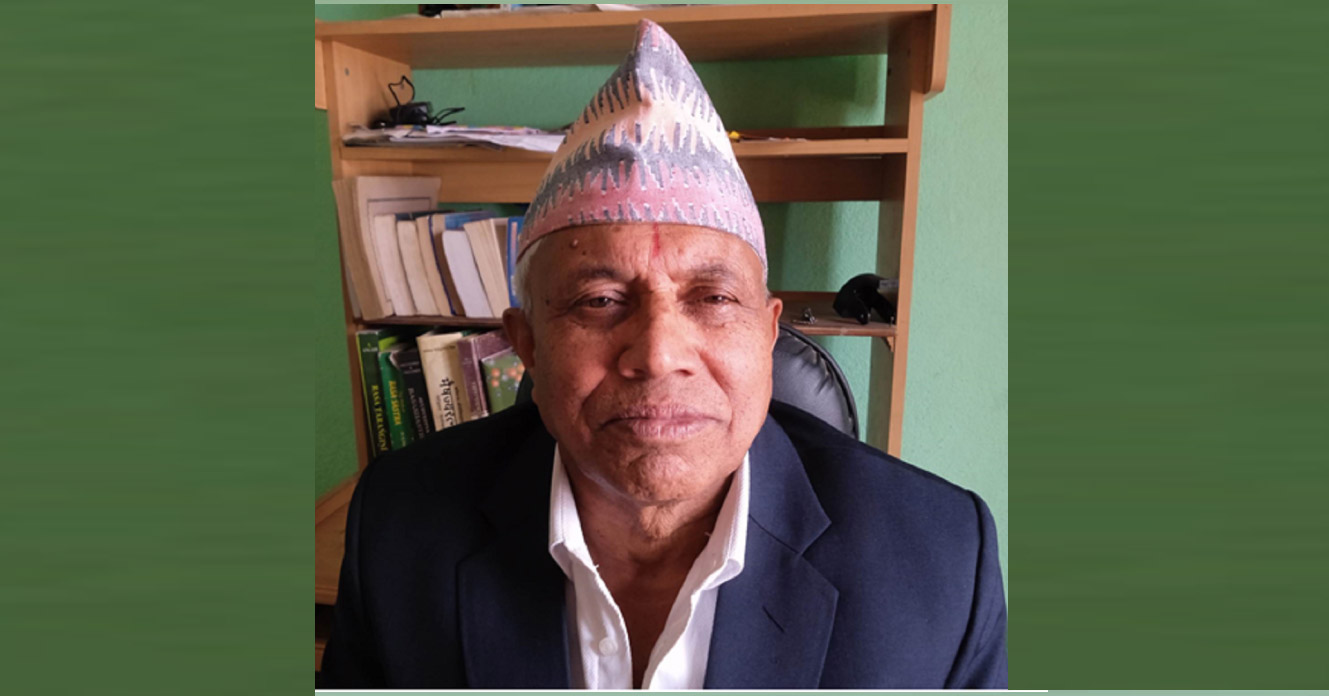
Establishment of Ayurveda Study Institute in Nepal: Dr. Ndraraj Sapkota Emphasizes Urgency
Dr. Ndraraj Sapkota, an expert in Ayurveda medical science, has emphasized the need to establish an Ayurveda study institute in Nepal. Despite the Nepal Government Ministry of Health and Ministry of Education's decision in 2051 BS to develop and expand the Ayurveda medical field, an institute has not yet been established under Tribhuvan University.
Proposal to Establish Ayurveda Study Institute
A nine-member committee, including Dr. Sapkota and heads of various Ayurveda agencies, submitted a report recommending the establishment of the institute. In a meeting held on 2074 Falgun 16, the then Vice-Chancellor of Tribhuvan University, Prof. Dr. Tirtha Khania, approved the decision to establish the institute, which was sent to the university senate. Dr. Sapkota suggests that the government should start the process as soon as possible to promote academic teaching and important research in the Ayurveda field.
National Ayurveda Academy and Council of Ayurveda and Complementary Medicine
Dr. Sapkota also recommends the establishment of a National Ayurveda Academy to expand the Ayurveda sector, which has become the original medicine of Nepal. Although the Ministry of Health was supposed to operate the National Ayurveda Institute in 2063 BS, the process has not progressed. Additionally, the Council of Ayurveda and Complementary Medicine, intended to regulate and research natural, homeopathy, Unani, Amchi, and traditional Chinese medicine, has not been formed despite the Cabinet of Ministers of the Government of Nepal passing the report.
Potential for Ayurveda Medicine in Nepal
Nepal has a long history in the Ayurveda field and immense potential for herbs, including Yarshagumba, Panchaungale, Jatamsi, and Lothsallo, with important medicinal value. Dr. Sapkota suggests that the government should prioritize managing Singha Darbar Baidyakhana and Ayurveda Campus Kirtipur to develop the Ayurveda medicine system within the country. By utilizing and manufacturing medicine from the herbs found in Nepal, the country could save billions of rupees spent abroad.
The Singha Durbar Baidyakhana, which was established during the reign of King Pratap Malla, has faced several problems in recent years. While it was initially providing Ayurveda medicine only to the people of the palace, it started distributing medicine to the general public in 2008. However, it has faced many challenges since then. The organization was previously producing about 185 types of Ayurvedic medicines using natural herbs available in the country, but now it is limited to producing only Chyawanpras.
According to Prof. Dr. Sapkota, who worked as the Managing Director of Singhdarbar Baidyakhana Development Committee for a few years, the deterioration of Baidyakhana can be attributed to the lack of expert leadership in the Vaidyakhana Development Committee and the government's lack of interest in Singha Durbar Baidyakhana. Additionally, there is an unnecessary recruitment of employees, and health ministers are more focused on political recruitment than hiring experts with the necessary managerial ability to run the organization.
Prof. Sapkota suggests that the person who leads Singhdarbar Baidyakhana should be competent and should understand whether he has come to develop the organization or to do other work. He also highlights the fact that the herbs in Nepal cannot be used to their maximum potential, and if the organization can be operated systematically, it will help in the development of Ayurveda medicine in Nepal and eliminate the need to import medicine from abroad.
Overall, the Singha Durbar Baidyakhana needs a competent and expert leader who can run the organization systematically and effectively, with the support of the government. If managed well, it has the potential to play a crucial role in the development of Ayurveda medicine in Nepal.
Ayurveda medicine has a long history in Nepal, and it has the potential to contribute significantly to the country's healthcare system. However, there are several challenges to the development of the Ayurveda sector in Nepal. One of the main challenges is the lack of proper implementation of policies related to Ayurveda education and development.
Another challenge is the lack of proper utilization of the vast potential for herb production in the country. Many herbs produced in Nepal are exported to neighboring India, and some are left to rot in the forest. The government needs to take action to ensure that these herbs are utilized properly to benefit the country and its people.
Leadership is also crucial for the development of the Ayurveda sector in Nepal. The government needs to provide the necessary support and resources to develop the sector and ensure that skilled manpower is available to work in this field.
There is a need to establish Ayurveda study institutes in every university in Nepal to ensure that the necessary education and training are available to those interested in pursuing a career in Ayurveda medicine. Although the Nepal Sanskrit University has established an Ayurveda study institute, it has not yet been organized due to the lack of necessary manpower. The establishment of Yogamaya Ayurveda University is also in progress, but its latest status is unclear.
Overall, the development of the Ayurveda sector in Nepal requires a concerted effort from the government, healthcare professionals, and the general public. Ayurveda medicine has the potential to contribute significantly to the country's healthcare system, and it is essential to ensure that it is given the necessary attention and resources to thrive.
Conclusion
Dr. Sapkota believes that the Ayurveda medical field in Nepal is lagging behind due to the lack of government leadership. The government must take urgent action to establish the Ayurveda Study Institute, National Ayurveda Academy, and Council of Ayurveda and Complementary Medicine to develop and expand the Ayurveda sector in Nepal. Proper use of medicinal herbs in Nepal could revolutionize the country's healthcare system and reduce its dependence on expensive medicine from abroad.





